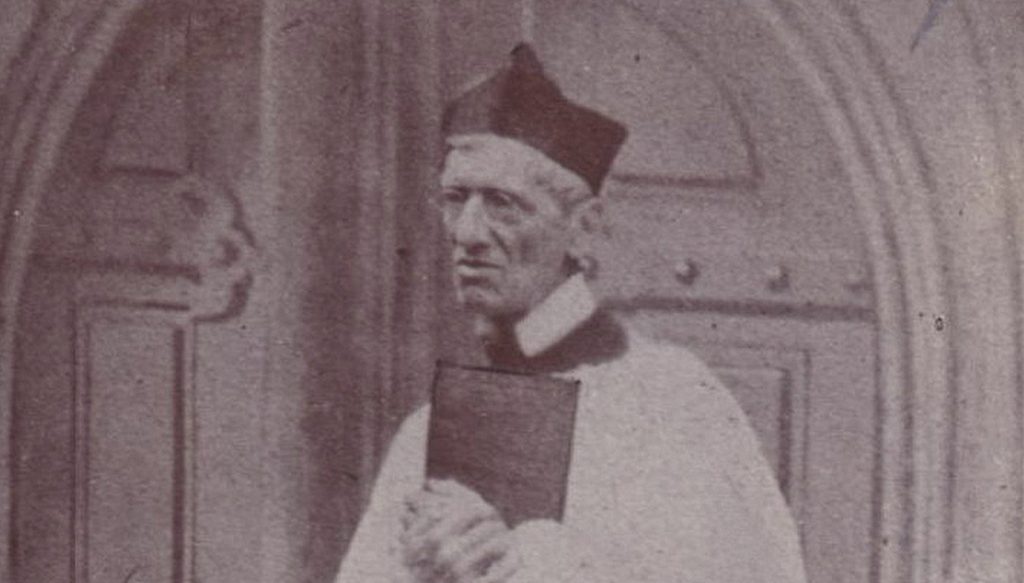On Oct. 13, Pope Francis will canonize one of my favorite Victorian writers: Cardinal John Henry Newman.
I acknowledge this is a strange way to characterize Newman. He was, after all, a revered cardinal and theologian whose spirited defense of both conscience and fidelity continue to reverberate among Catholic philosophers whose elevated prose I try to follow with only spotty success.
These philosophers are interested, rightly, in tracing the movements of Newman’s subtle mind. It takes a subtle mind to roundly condemn liberalism in religion, which he described as “the doctrine that there is no positive truth in religion, but that one creed is as good as another, ...” and at the same time expound the primacy of conscience and the development of doctrine.
I will leave it to the philosophers and theologians to tease out those complicated strands and divine their implications for Catholicism today. It is certainly a worthy project, faced as we are in this age by the bizarre trappings of an end-stage modernism that only someone as farsighted and wise as the cardinal could have foreseen, although I suspect they would have made him blush.
When in the 19th century he opposed liberalism’s teaching that all religions are a matter of opinion, sentiment, and taste, he gave us the intellectual ground upon which to battle the teaching’s evolution: that all facets of human existence are matters of taste and feeling.
That ground is his luminous understanding of conscience, which he described unforgettably as “the aboriginal vicar of Christ” in man: aboriginal because it exists always and everywhere, predating revealed religion and independent of experience; vicar because it is “a messenger from Him, who, both in nature and in grace, speaks to us behind a veil.”
This messenger from God is an advocate for truth that resides deep in the recesses of every person’s mind — demanding and insistent. Those who are welcoming to the spirit of truth within them are bound to set aside their own subjective views and bind themselves to the guidance of God.
It can be said, with justice, that the organizing principle of Newman’s life was the faithful pursuit of the paths illuminated by a vigorous and highly developed conscience. And those of us who are not theologians or philosophers are very fortunate that the cardinal didn’t write just books, sermons and treatises, but also novels and a spiritual biography (the “Apologia Pro Vita Sua”).
These explore the same heady concepts as his scholarly works and teach us the same lessons, but have an added benefit: They reveal the tender and affectionate nature of the man.
It would take a hard heart to read Newman’s “Apologia” and not begin to love him. He writes superbly, with an eloquence, elegance, and expressiveness that explains why James Joyce considered him the greatest prose stylist of his time.
Reading his spiritual autobiography, we meet a man who was a warm friend and a generous adversary, although relentless in the defense of the truth. We learn to revere the meekness of a saint who suffered deeply when he was publicly vilified for converting to Catholicism as an eminent Anglican churchman.
We tremble with sympathy when we read about his exile from his beloved Oxford and how he lost the respect of friends and family. In short, we identify with his vulnerability and humanity and are inspired to emulate his holiness. In Newman the writer we find not a dry theologian but a human being like us, albeit vastly kinder, braver, and holier than most. We find a saint for our times.
Perhaps Newman’s most valuable offering for us, his spiritual descendants who live in a culture entirely given over to what he called the “anti-dogmatic principle,” is his perfect trust in Providence.
He had no fear that any human error, any closure of our ears to conscience or revealed truth, could do any serious harm to the Church, to God, or to his word. As has happened countless times, in some wholly unexpected way Providence will come to the rescue of Christianity and Christ’s followers.
Whether the enemy falls apart, or becomes a friend, or acts just long enough to be a salutary influence before being removed, it is certain that we will be saved.
What must we do? Simply, Newman tells us, go on in our “own proper duties, in confidence and peace; to stand still and to see the salvation of God.”

